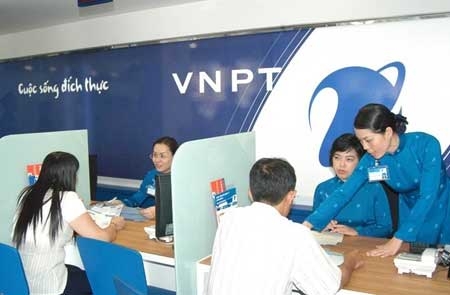
Local telco giants are making great strides in roll-outs of made-in-Vietnam smartphones.
 In late August 2013, VNPT Technology Joint Stock Company (under leading state telco group VNPT) launched its made-in-Vietnam smartphone Vivas Lotus S1.
In late August 2013, VNPT Technology Joint Stock Company (under leading state telco group VNPT) launched its made-in-Vietnam smartphone Vivas Lotus S1.
On the following day, military-run Viettel Group announced that since July, they had already rolled out 30,000 of their homegrown smartphone.
Local telcos are working hard to upgrade their production scales to cover the increasingly expansive demands of the market.
It marked with the setup of VNPT Technology in early 2011 with $23.8 million in total chartered capital whose founding shareholders were the VNPT which contributed 51 per cent of the chartered capital, VNPost and Pacifab each pooled in 10 per cent of the capital and some other partners.
In March 2011, VNPT Technology acquired Nokia Siemens’ capital contribution in Teleq, a joint venture (JV) between VNPT and Nokia Siemens Networks and a month later it bought Alcatel Lucent’s stake in ANSV, a JV between VNPT and Alcatel Network Systems Vietnam.
In July 2011, the firm founded digital content and added value services provision firm VIVAS.
One year later, VNPT Technology entered into a JV with Hong Kong-based Well Pacific Worldwide to form VNPTEC, headquartered in Hong Kong, to handle technology transfer and production materials and accessories supply which also acts as a gateway for export to regional markets and to accessing capital support.
Smartphone Vivas Lotus S1 is the first smartphone chain launched by VNPT, with others planned in the near future. The group is developing its smartphones toward becoming products of national significance, with long-term plans for export, said a VNPT source.
Viettel similarly founded their Viettel Research and Development Institute (Viettel R&D) in January 2011, and this year set up a factory producing five million units of 3G USBs and three million handsets.
The group has faced difficulties as nearly 70 per cent of the components for the final product had to be imported and duties ranged from 15 to 25 per cent, whereas imported handset are tax free.
As part of its competitive mindset, Viettel was reported to be hunting highly qualified professionals both at home and abroad, with particular emphasis on hi-tech firms.

 Previous page
Previous page Back to top
Back to top







